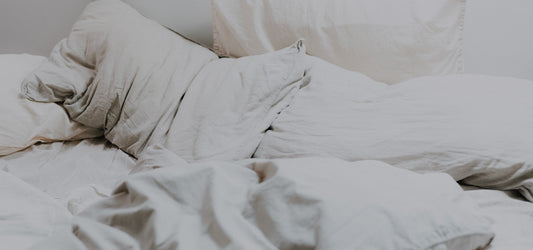How to get up early?

What does it mean to "get up early"? This phrase is widely used, but the context in which it appears can change its meaning.
Someone who is known for rising early or being an "early riser" might routinely wake up earlier compared to the general population.
Waking early can also mean that you can maintain a more comfortable time gap between your daily obligations relative to your current wake-up time.
The question can also be a way to figure out how to wake up more easily at a reasonable time - for example, without having to rely on external signals.
So the meanings are different, but the problems they ultimately refer to are the same. If our natural sleep cycle is not aligned with the time we want or need to wake up, then the waking process becomes more difficult.
The question “How do I wake up early?” or “How can I get up earlier?” actually refers to the following questions:
- How can I develop a different, natural sleep rhythm?
- How can I control when I wake up?
- How can I make waking up less unpleasant?
Fortunately, we now have good answers to these questions. Scientific understanding of the physiology of sleep cycles is helping us understand why waking up can be difficult, while research into habits, tools and technology is offering us new ways to alter these cycles.
Waking early is certainly possible for most people who are unhappy with the way they currently wake up, in terms of their personal or even externally induced goals. In this article, we give practical advice on how to align the time you want to wake up with the time your body wants to wake up. This is what "waking early" really means in all its contexts.
Why waking up and getting up early can be difficult
Waking up can be difficult if your internal clock doesn't match your external routines, such as if you're a night owl but have to get up early for work or school.
To understand this, we first need to know what sleep and wake phases are and how they are controlled by the brain. Sleep and wake phases are controlled by two physiological processes - sleep-wake homeostasis 1 and the circadian biological clock 2 .
The homeostatic sleep-wake process determines how much sleep you need based on how long you've been awake. This process helps us instinctively know when our bodies need sleep and ensures that the amount and depth of sleep we get remains consistent over time.
Our circadian clock is a timekeeping system that allows us to anticipate natural environmental changes, such as light and temperature. Each of us is subject to an individual circadian rhythm that is largely determined by genetics - in the case of sleep, the genetic component that determines the circadian rhythm is commonly referred to as the chronotype .
These two processes work in parallel to determine our natural sleep and wake cycles - and there is also evidence that the processes influence each other. 3
This means that the time you wake up depends on your chronotype, which we can't easily change. Some people are naturally wired to wake up early.4 However, you can change your circadian rhythm and sleep-wake homeostasis by improving your sleep hygiene, developing new habits, and using technology, tools, and supplements.
How to balance these processes with social obligations is what makes waking difficult. While most of us would naturally achieve a fairly healthy balance, for some it's a struggle. A common situation is that sleep and wake times are different on days with no outside obligations. On these days, we allow homeostasis and circadian timing to dictate sleep and wake times—they are "natural" and lead to adequate rest. This is in contrast to other days when sleep and wake times are regulated by alarm clocks and/or medications. This leads to what's called "social jet lag," 5 , 6 something you may also experience if you have trouble waking early.
Given that we can control the process of sleeping and waking ourselves, it's important to set realistic and achievable sleep goals. Unfortunately, it's hard to consistently wake up at a time we collectively perceive as early, unless you have a chronotype that allows it. Going to the gym at 4:30 a.m. may seem like a good idea in principle, but in practice most of us probably won't be able to keep this up long-term. Instead, you can try gradually changing your sleep habits until they become more aligned with reasonable external expectations.
Start with how and when you fall asleep
In order for your natural wake-up time to match your external circumstances, you need to fall asleep at a time that allows for enough sleep - this is necessary if you want to maintain a healthy homeostatic sleep-wake balance. 7 For many people, the problem of waking early starts with the time of falling asleep.
The time at which we fall asleep is important, but it's also a time in the day that can easily be neglected. Sleep hygiene is a term that refers to behavioral changes that affect sleep, including caffeine and alcohol consumption, stress management, exercise, and being consistent with sleep times. Knowing these small changes we can make to our daily habits can have a significant impact on our ability to fall asleep at a time we choose.
In addition to sleep hygiene, there are other ways to improve the phase in which we fall asleep, the effectiveness of which is well documented - for example meditation 8 , stretching 9 or writing a diary 10 .
Strengthening your bedtime routine will give you more control over when you fall asleep. As you work on your routine, you can try adjusting your schedule in small increments (e.g., fifteen minutes) until you consistently fall asleep at a reasonable time.
Adjust your sleep and wake-up routine
Changing the way you fall asleep will also change how and when you wake up. But waking up is also a routine that we can optimize. Again, it helps to understand what happens to our body during waking.
Natural awakenings usually occur during a period of non-rapid eye movement (NREM sleep) .11 Blood pressure and temperature rise, as do serotonin and cortisol levels. It's normal to feel tired and groggy shortly after waking, 12 but we can make this time less unpleasant by creating a routine that encourages a natural waking process and takes away the stress that waking can sometimes add to our day.
Just like falling asleep, staying consistent when waking up is important to avoid disrupting our circadian rhythm. 13 Greater sleep variability is strongly linked to poor sleep and other negative health outcomes 14 and is one of the first things we need to address when trying to improve our sleep .
Light is also an important factor in how we wake up. There is evidence that bright, white light in the morning can increase alertness 15 - which makes sense given the way the circadian rhythm has evolved to anticipate changes in light intensity. While most of us cannot change the natural light we are exposed to each morning, products such as sleep lamps or light boxes can be used to mimic the gradual increase in natural light.
Snoozing is something we should avoid when trying to develop a positive waking routine. It's normal to want to go back to sleep during a waking phase, but if you do go back to sleep, you're likely to wake up in a different sleep phase and end up feeling less rested . It also disrupts your circadian rhythm, which needs regularity to function properly.
Use B • SYNC ON to adjust the time you naturally wake up
With a better understanding of sleep comes innovation in sleep aids and technologies.
B - SYNC ON is a scientifically tested dietary supplement designed to improve the waking process. B - SYNC ON works by supplying the body with vitamin B5, B12, zinc and a low dose of caffeine after a certain period of time, which are only released seven hours after ingestion.
Caffeine, if taken at the wrong time of day, can have a negative impact on sleep and waking. However, taking a small amount of caffeine after a good night's sleep promotes the natural physiological transition between sleep and wakefulness, and the delayed release ensures there are no negative effects on sleep quality. When combined with supplements proven to help with falling asleep and waking up, the small amount of caffeine in B - SYNC ON has a mood-enhancing and cognitive effect immediately after waking. 16
B - SYNC ON can be taken alongside sleep habits and helps you get your natural wake-up time to where you want it. Our clinically proven formula specifically targets the wake-up process and helps people achieve their sleep goals, including waking up early. Learn more about B - SYNC ON here.
Recognize sleep disorders and consult a doctor
If, despite having a healthy routine, you continue to have trouble waking on time and feel like you are not getting enough rest during sleep, you may be suffering from a medical disorder that is interfering with the natural sleep process. It is important to distinguish between sleep problems that require clinical treatment and normal sleep that is disrupted by factors we can control.
Circadian rhythm disorders 17 are a group of sleep disorders that affect the timing of waking and sleeping. Other disorders such as sleep apnea , restless legs syndrome and narcolepsy affect sleep and can cause serious impairment without clinical intervention.
If you suspect you have a sleep disorder, try tracking your sleep trends by either keeping a sleep diary or using wearable technology (such as a fitness tracker that tracks sleep patterns), and talk to a healthcare professional as soon as possible.
Establish and optimize a sleep routine
There are many factors that affect sleep.18 To change the timing of when we fall asleep and wake up, we need to get a handle on these factors, and most of us have considerable control over these factors.
To wake up earlier, we need to adapt our natural waking process to external demands. This requires changing habits in all areas of the sleep process, including improving sleep hygiene and adjusting the external cues that tell the body it's time to wake up. These changes, complemented by the latest tools and technologies, can be used by most people to achieve their sleep goals.
If you have trouble waking up in the morning, learn more about how B - SYNC ON can help you here.
Sources
- https://www.hopkinsmedicine.org/health/conditions-and-diseases/sleepwake-cycles
- https://www.sciencedirect.com/science/article/pii/S2451994417300068
- https://www.sciencedirect.com/science/article/pii/S2451994417300068
- https://www.nature.com/articles/ncomms10448
- https://www.webmd.com/sleep-disorders/news/20120510/do-you-have-social-jet-lag
- https://www.cell.com/current-biology/comments/S0960-9822(12)00325-9
- http://healthysleep.med.harvard.edu/healthy/science/how/internal-clock
- https://www.health.harvard.edu/blog/mindfulness-meditation-helps-fight-insomnia-improves-sleep-201502187726
- https://www.ncbi.nlm.nih.gov/pmc/articles/PMC6781703/
- https://www.ncbi.nlm.nih.gov/pmc/articles/PMC5758411/
- https://www.frontiersin.org/articles/10.3389/fneur.2015.00032/full
- https://www.ncbi.nlm.nih.gov/pmc/articles/PMC5337178/
- https://www.headspace.com/articles/sleep-health-2-consistent-wake-up-time-sleeps-surprising-mvp
- https://cdnsciencepub.com/doi/full/10.1139/apnm-2020-0032
- https://pubmed.ncbi.nlm.nih.gov/16920622/
- https://www.nature.com/articles/s41598-021-98376-z
- https://my.clevelandclinic.org/health/diseases/12115-circadian-rhythm-disorders
- https://healthysleep.med.harvard.edu/healthy/science/how/external-factors







